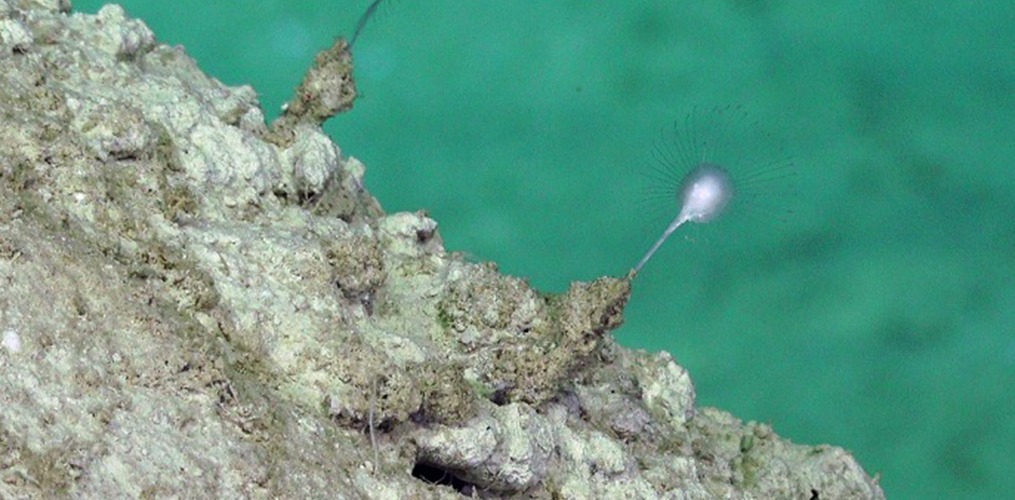
On March 19, The World Register of Marine Species (WoRMS), an initiative hosted by VLIZ, LifeWatch Belgium‘s focal point, released the top ten marine species described by researchers in 2023, coinciding with World Taxonomist Appreciation Day. The list highlights about 2,000 new marine species discovered each year. In 2023, WoRMS added almost 2,000 marine species, including some 330 fossils.
In December 2023, World Register of Marine Species sent an invitation for nominations to editors of WoRMS and major taxonomy journals. The invitation was also posted on the WoRMS website and social media, allowing anyone to nominate their favourite marine species described in 2023. These nominations could also include marine fossils.
The 2024 Top Ten list
A committee of volunteers, including taxonomists and data managers, reviewed nominations and selected final candidates. The list of selected species is not hierarchical:
- Falkor’s Carnivorous Sponge, Abyssocladia falkor
- The Bifrost Nemertean, Tetranemertes bifrost
- Solwarawarriors vestimentiferan, Alaysia solwarawarriors
- Hannan’s Pygmy Squid, Kodama jujutsu
- The Samoan Nautilus, Nautilus samoaensis
- Prince Albert’s Sea Daisy, Xyloplax princealberti
- Bouchet’s Dorymenia, Dorymenia boucheti
- Fine Line Nudibranch, Halgerda scripta
- Fordyce’s Giant Penguin, Kumimanu fordycei †
- St. George’s Cross Medusa, Santjordia pagesi
The final selections showcase a variety of taxonomic groups found in the marine environment, such as crustaceans, corals, sponges, jellyfish, and worms. They also shed light on the challenges faced by the marine environment today. The chosen candidates feature astonishing and scientifically significant marine creatures that appeal to the public. Each of these marine species has a unique story, and this year’s chosen species include some of the weirdest and most astonishing creatures found in the ocean, such as a beautifully coloured nemertean, a carnivorous sponge, and a giant extinct penguin. Taxonomists collect, identify, and name new species every day. Over 300 taxonomists also maintain the World Register of Marine Species.
About the top-ten list of Marine Species
The WoRMS Top Ten Marine Species 2023 would not have been possible without the collaboration between the WoRMS Data Management Team (DMT), the WoRMS Top Ten Decision Committee, the WoRMS Steering Committee (SC), and the voluntary contributions of many of the WoRMS editors.
The Top Ten Lists initiative started in 2007. Please visit this page to learn about the 2023 Top Ten List and previous years’ lists.
What WoRMS does
WoRMS – the World Register of Marine Species – compiles a comprehensive list of all marine organisms and their synonyms. It provides valid and other names to help interpret taxonomic literature. Over 245,000 marine species have been described and managed by more than 300 scientists worldwide. WoRMS is a service provided by LifeWatch Belgium.
The cover image was taken by Merrick Ekins and shows the holotype and paratype of Abyssocladia falkor, a new carnivorous sponge from the Great Barrier Reef, Queensland, Australia, collected by the ROV FALKOR. The original online source can be found at https://doi.org/10.11646/zootaxa.5293.3.2